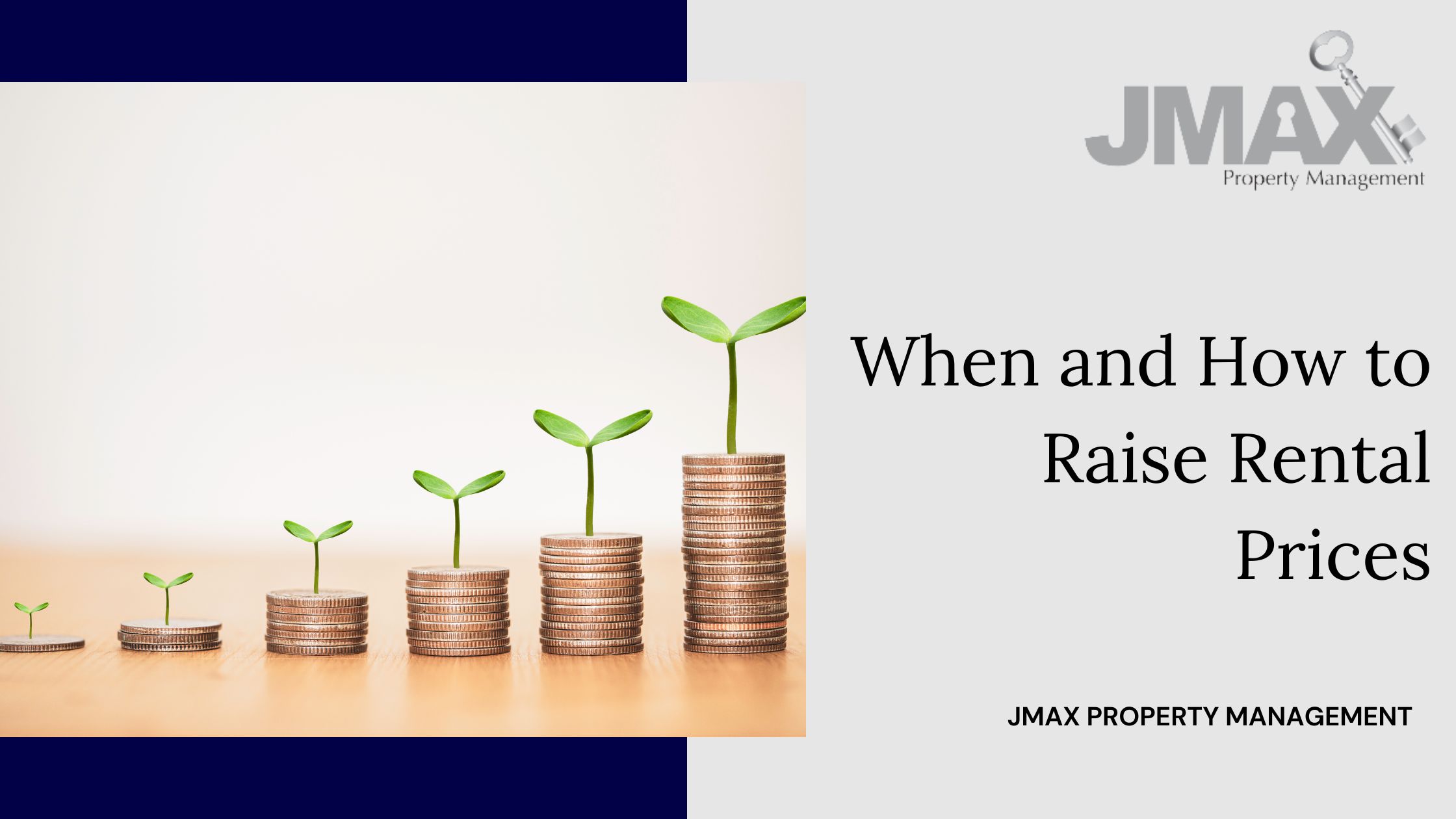
One of the most important decisions you’ll make as a rental property owner is when and how to raise rental prices. It’s a delicate balance that requires careful consideration of both your financial goals and your responsibility to provide fair and affordable housing.
As a landlord, you need to understand the key aspects of this decision-making process, from why you should consider raising rent to when and how to do it successfully while maintaining positive tenant relationships.
Why Landlords Should Consider Raising Rent
Raising rent is a topic that often makes landlords and tenants uneasy, but there are valid reasons for doing so. Here are a few key motivations:
- Economic Factors: The cost of maintaining a rental property isn’t static. Property taxes, insurance premiums, and maintenance and repair expenses increase over time. Raising rent allows landlords to keep up with these costs and maintain the property’s value.
- Market Conditions: If demand for rental properties in your area is high, you may be able to charge a higher rent. This can help you maximize your return on investment.
- Investment Goals: Landlords may have financial goals that require higher rental income. Whether it’s to fund property improvements, cover mortgage payments, or generate additional income, increasing rent can be a viable strategy.
- Fair Return on Investment: Landlords deserve a fair return on their investment.
- Property Improvements: If you’ve invested in upgrades or renovations that enhance the property’s value, it’s reasonable to reflect those improvements in the rental price.

When Should Landlords Consider Raising the Rent
Raising rent requires careful timing to minimize disruption and ensure fairness. Here are some scenarios when it might be appropriate to consider raising rent:
- After Making Property Improvements: When you make significant improvements or upgrades to the rental unit, it’s reasonable to raise the rent to reflect the added value.
- At the End of the Lease: The end of a leasing period is a natural time to discuss rent increases. It allows both parties to assess the situation and negotiate if necessary.
- After Doing Market Research: Regularly monitor the local rental market. If you notice that similar properties in your area are renting for higher prices, it may be time to adjust your rates to maximize your returns.
- Due to Inflation and Cost of Living: If there’s a significant increase in the cost of living or inflation, it may justify a rent increase to ensure that the rental income remains in line with economic conditions.
Steps to Successfully Raise Rent and Keep Your Tenants
Raising rent can be a sensitive issue, but with careful planning and communication, you can retain your renters. Here are the steps to do it successfully:

- Review the Lease Agreement and Local Laws: Carefully review the lease agreement to ensure you’re within your legal rights to raise the rent. Some jurisdictions have rent control laws that limit how and when you can increase rent.
- Notify Tenants in Advance: Provide ample notice to your tenants before implementing a rent increase. 30 to 60 days’ notice is common and is often required by law. Make sure to check with your local and state laws to ensure that you remain in compliance with the required notice.
- Explain the Reasons: Be transparent with your tenants about why you’re raising the rent. Mention factors like increased property taxes, maintenance costs, or market conditions. This can help tenants understand the necessity of the increase.
- Offer Options: In some cases, you may be able to offer tenants alternative options to a rent increase, such as signing a longer-term lease at the current rate or including utilities in the rent.
- Negotiate If Necessary: Be open to negotiation. If your tenants are responsible, you may want to find a compromise that increases income without raising rent.
- Document Everything: Keep a record of all communications and agreements related to the rent increase. This documentation can be valuable if any disputes arise later.
How to Determine the Right Rental Price
Setting the rent too high can lead to vacancies while setting it too low can mean lost income.

Here’s how to find the sweet spot:
- Conduct Market Research: Research rental prices for similar properties in your area. Online real estate platforms and local property management companies can provide valuable data.
- Consider Property Upgrades: If you’ve made improvements to your property, factor them into the rental price. Tenants are often willing to pay more for a well-maintained, upgraded property.
- Evaluate Local Demand: Consider the demand for rental properties in your area. If demand is high, you may have more room to raise rent.
- Calculate Operating Costs: Determine your operating costs, including property taxes, insurance, maintenance, and mortgage payments. Make sure the rent covers these expenses while providing a reasonable return on investment.
- Incorporate Inflation: If you plan to implement annual rent increases, consider inflation rates to maintain the property’s value over time.
Why You Should Consider Working with a Property Management Company
Working with a reliable property management company provides a lot of benefits, especially when it comes to handling rent increases. These experts have extensive industry knowledge and can help you navigate complex legal issues and factors that impact the market, and determine the perfect rental rate for your property. Moreover, professional property managers are skilled in tenant relations.
Since they have a deep understanding of the local rental markets, they can help you set competitive rental rates and adjust them as needed. They also ensure that you’re complying with all relevant laws, avoiding legal issues and potential fines.
Bottom Line
Deciding when and how to raise rental prices is a significant decision for landlords. It should be based on economic factors, market conditions, and your investment goals. Careful planning, communication, and compliance with local laws are essential when implementing rent increases.
If you’re unsure how to proceed, property management companies can provide valuable expertise and support throughout the process. If you need help, don’t hesitate to get in touch with JMAX Property Management!


